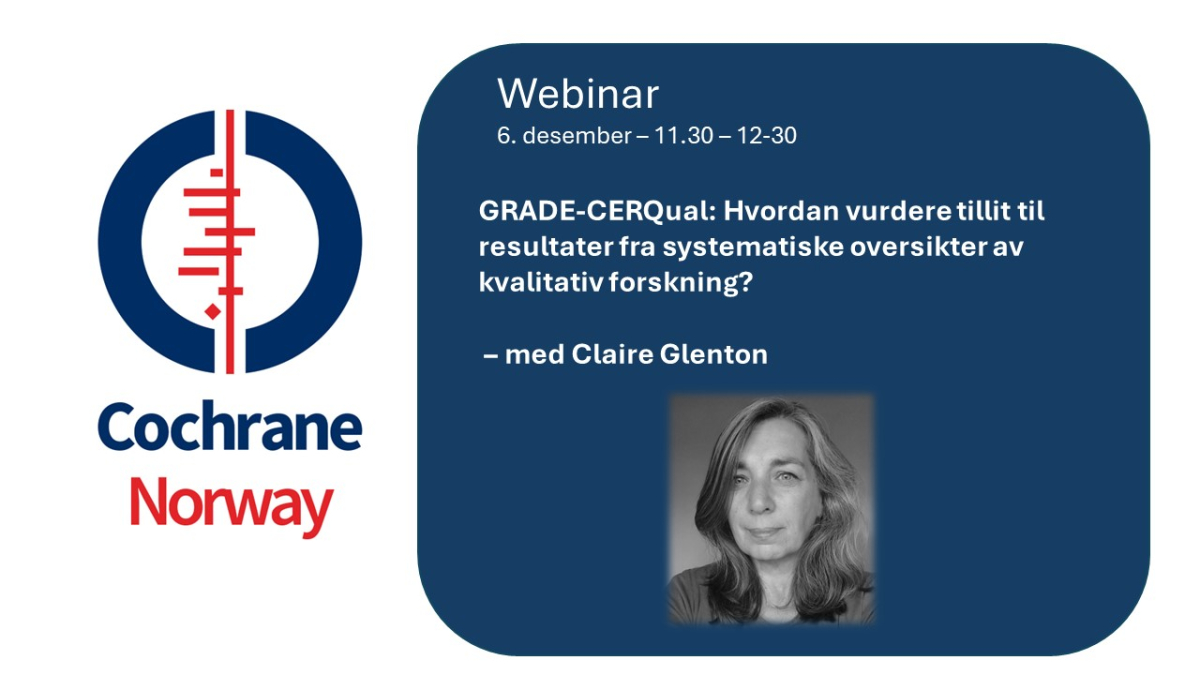To find other courses or seminars, you can visit Cochrane Training.
Webinar: What to consider when choosing thresholds for GRADE certainty ratings?
November 8th, 10 AM - 11 AM (CET, Norwegian time)
Language: English
Where: Zoom - https://hvl.zoom.us/j/62234131725?pwd=2nnbnaLjjavZb4HFaB13Nm6aNlAbJ0.1

In a key paper from 2017, GRADE defined the certainty of evidence as the certainty that the true effect lies on one side of a threshold or in a particular range. This definition has proved useful as the basis for rating certainty. However, in the initial and subsequent GRADE papers, the categorization of suggested thresholds and ranges as levels of contextualization has proved confusing for some GRADE users. In newly endorsed GRADE guidance a solution is presented – and different considerations that can be made when choosing thresholds are described.
At this webinar the new guidance will be presented together with a background on the topic. We aim for an informal and interactive webinar with a focus on discussing questions and thoughts from participants and implications for work in the Nordic countries.
Webinar: GRADE-CERQual: How to assess confidence in the findings from systematic reviews of qualitative research?
This webinar will be conducted in Norwegian. Therefore, all information about the webinar is provided in Norwegian.
6. desember - 11.30 - 12.30
Språk: Norsk
Hvor: Zoom - https://hvl.zoom.us/j/67183768085?pwd=OHRMOFFiQUpEKzQ0RFE1NUtUOGoydz09

Interessen for å syntetisere kvalitativ forskning i systematiske oversikter har vokst enormt de siste årene. Slike oversikter er en viktig kilde til informasjon om verdiene og erfaringene til for eksempel brukere og utøvere av helse- og velferdstjenester og kan være en viktig støtte til beslutningstagere.
Med økt bruk av kvalitativ forskning i beslutninger, følger også et behov for å vurdere tilliten til denne forskningen. GRADE-CERQual er et system for å vurdere og beskrive hvor mye tillit en kan ha til funn fra kvalitative forskningsoversikter (www.cerqual.org). GRADE-CERQual
